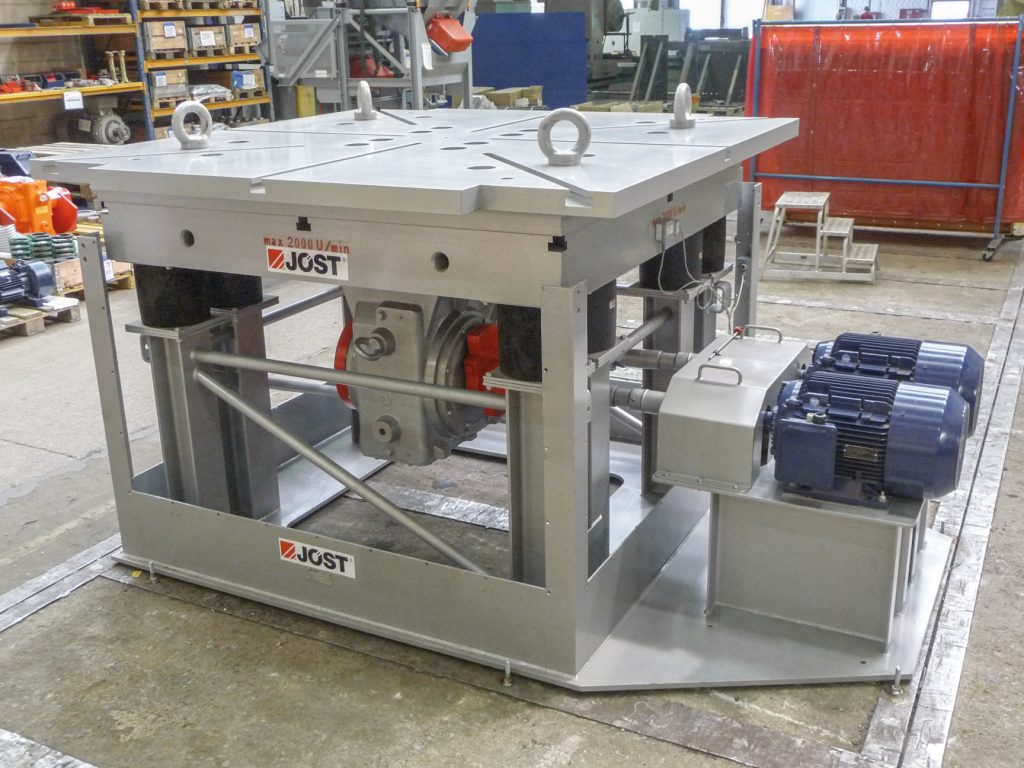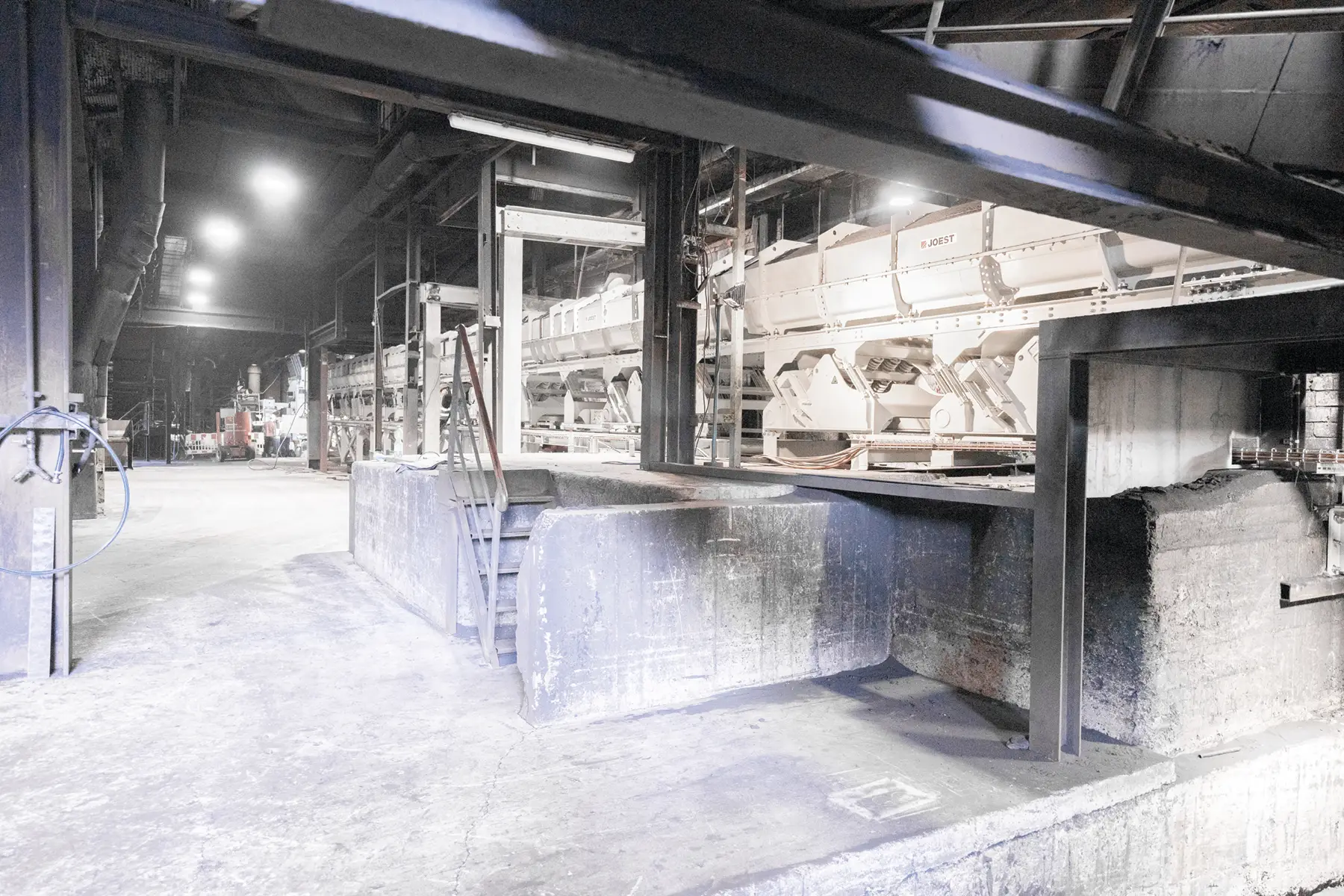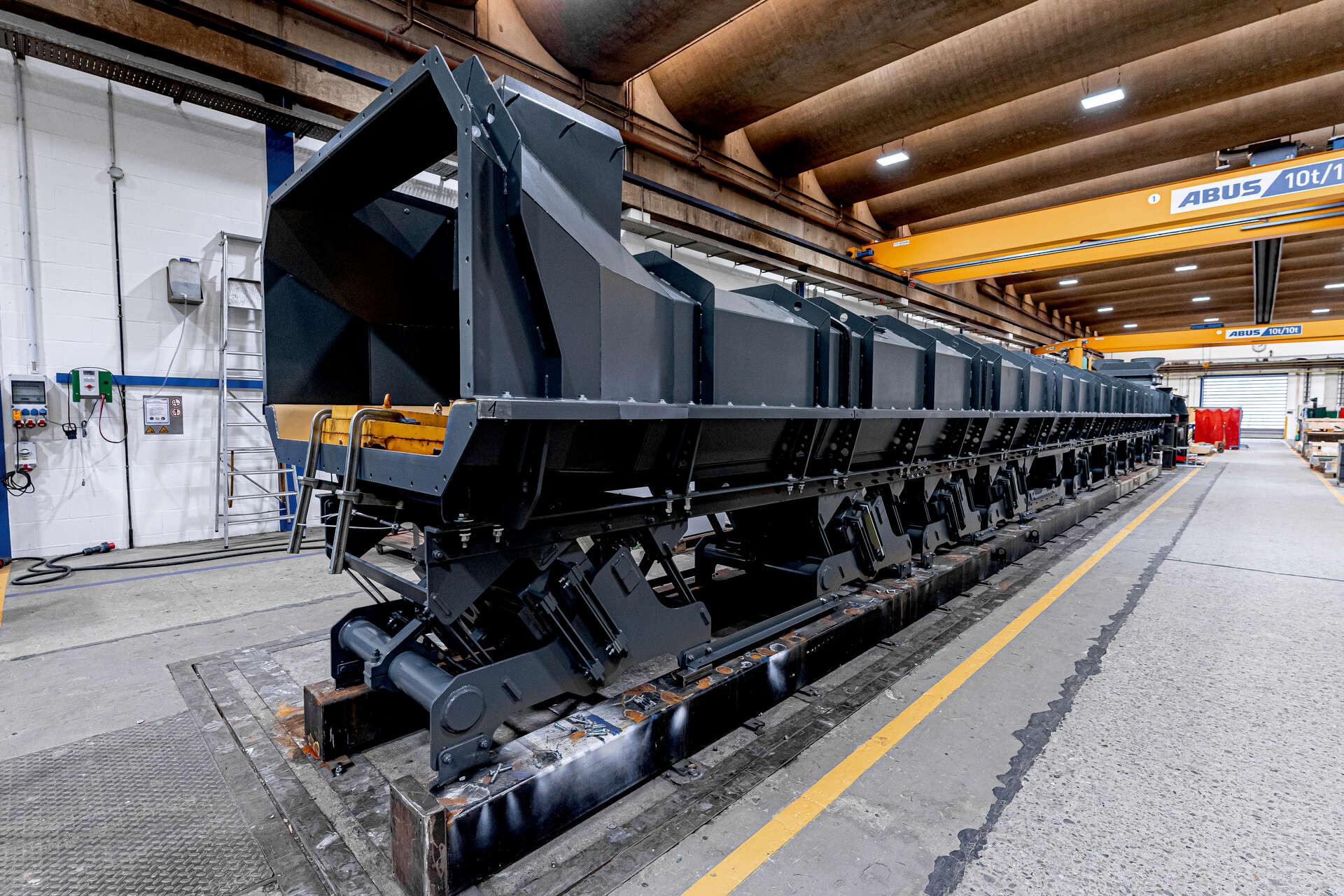METALLURGY
JOEST delivers special vibration table for german stainless-steel producer

Special design for compacting powder metal
For this assignment, JOEST designed a compaction table measuring 1800 x 1800, with a deck load of 12 t and an adjustable oscillation frequency of up to 33 Hz. The table consists of a solid, 200mm thick steel plate with T-notches.
The compaction table compacts the powder metal to enable the production of high density hard-metal-briquetting-rings. These are produced using the HIP process (Hot-Isostatic Press). The powder metal and additional moulded parts are placed in a mould to be compacted. The mould is deformable, yet air-tight and ring shaped and is made of a thin metal sheet. Afterwards, the mould is set in an air-tight oven, pressurized with up to 200 Mpa (2000bar) by a cover gas. With temperatures up to 2000°C, this is where the sintering process takes place.
The large gearwheel-diameter of the standard JR 1000 had an inadmissible circumferential-speed at 2000 1/min. Therefore, JOEST implemented a modified JR 1000 without gearwheels, but with oil slingers. The deadweight of the machine is 8.8 t. The vertical direction of oscillation is achieved by the alternatingly restricted placement of the flyweights. This direction is overlain by a horizontal, circular oscillation (in the same way as a Spiral Elevator).
The very hard briquetting-rings that are manufactured using this process feature an extremely high density and possess isotropic characteristics, which means that their physical properties are the same in every space axis.
As a qualified partner in customized machinery manufacturing, JOEST is prepared for every challenge and eagerly awaits your cases of application.
If you are interested in a vibration table, feel free to contact us!
Weitere Beiträge
As part of the JOEST group, MOGENSEN has been a trusted provider of high-performance screening and sorting technologies for many years. The new website now showcases this expertise more clearly and with a modern touch.
On International Women’s Day, we celebrated the great women in our company who have made a significant contribution every day with their commitment, expertise and passion. Their efforts have been a driving force behind our success and an inspiration to us all.
JOEST South Africa was commissioned to manufacture and supply replacement vibrating feeders for a critical power generation facility. The new units are designed to replace equipment that had been in operation for over 20 years, ensuring the continued reliability and efficiency of the plant.
MOGENSEN joins China’s food security project as an official supplier, supporting the nation’s plans to strengthen domestic grain production capabilities. The appointment by COFCO, China’s largest state-owned agricultural company, includes the deployment of multiple precision screening systems for processing rice, wheat and soybeans, among other grains. This long-term initiative is in line with China’s new food security law, which went into effect on June 1, 2024.







